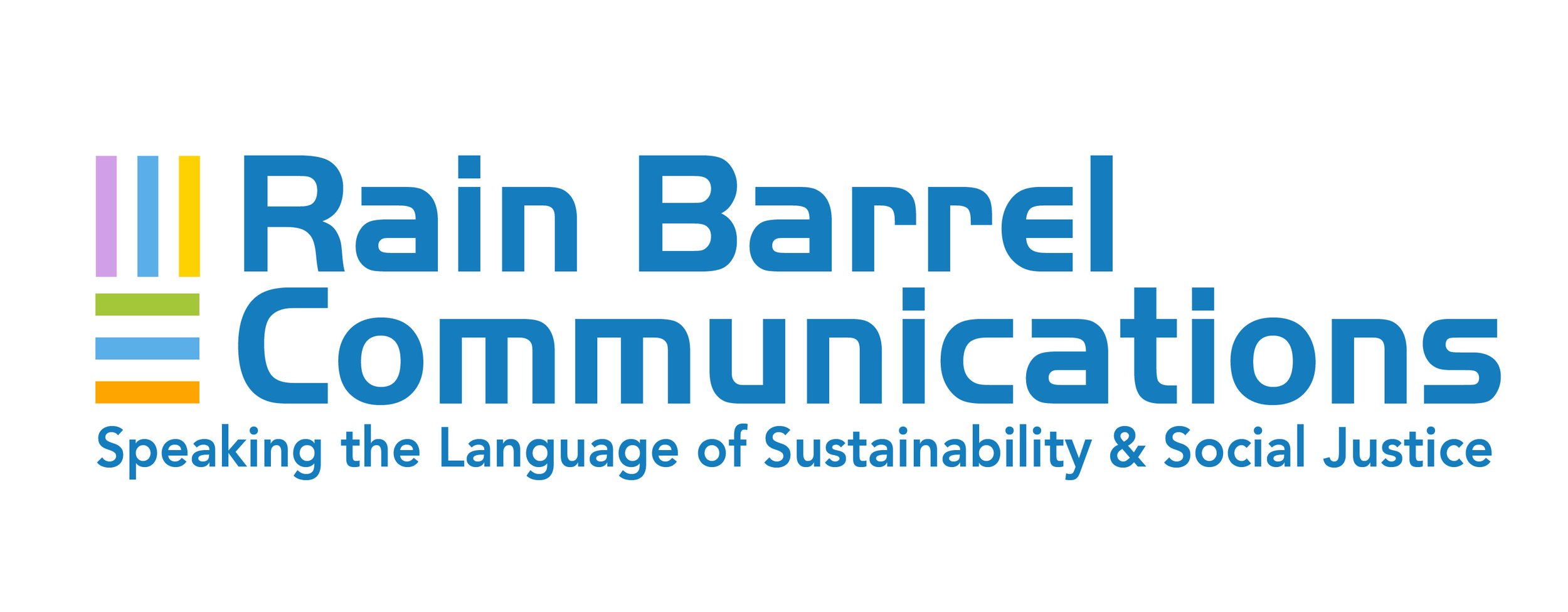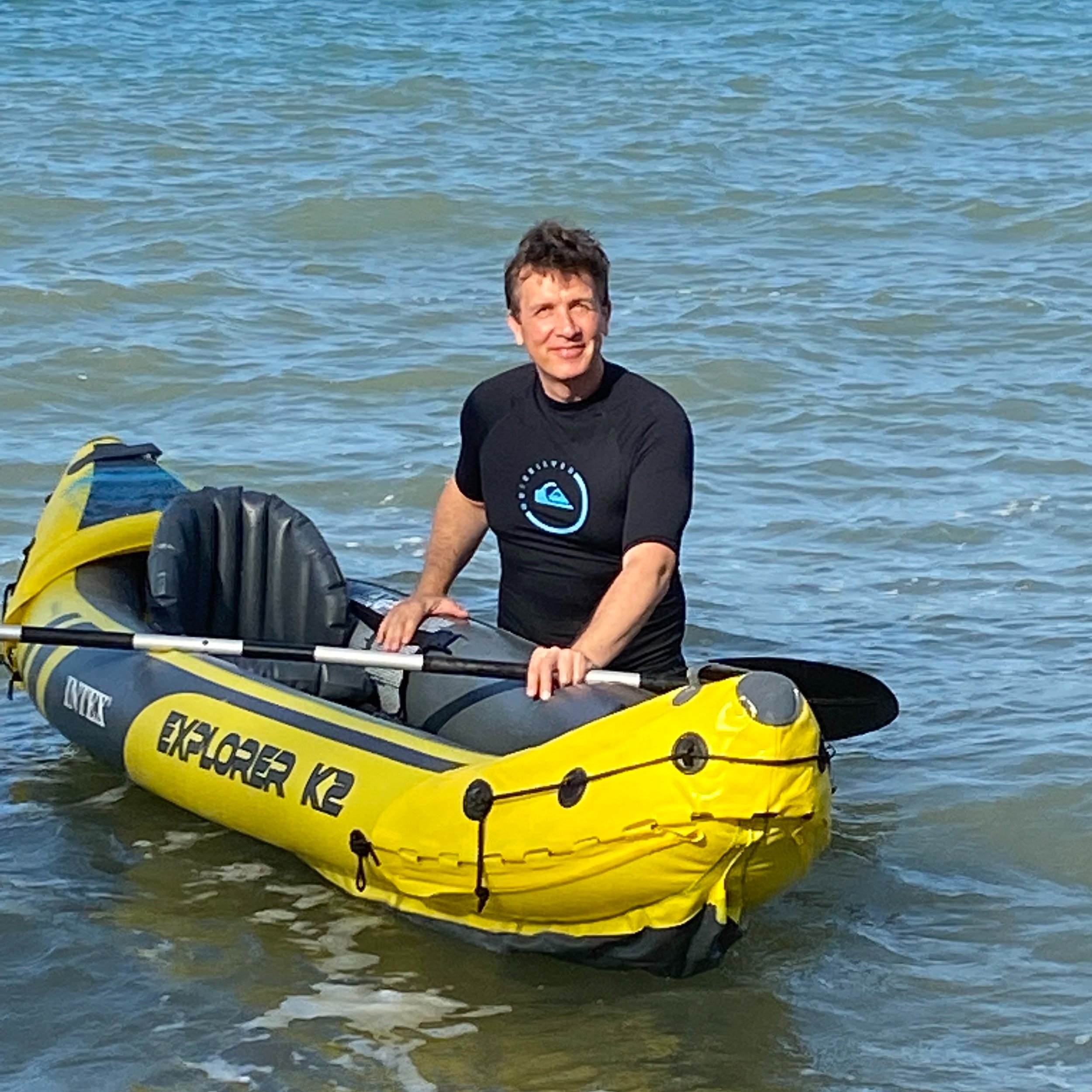Tomas Jensen: Our Man in Cairns
During a field visit to a remote community in Kampung Speu, Cambodia, 2006
Since leaving his post as Chief of Community Development at UNICEF in Phnom Penh in 2017, Tomas Jensen has been living in Cairns, the gateway to the Great Barrier Reef on the northeast coast of Australia with his teenage daughter. From this tropical base, he works as Rain Barrel’s Managing Director, currently overseeing 11 contracts on four continents. Paul Hoeffel, Rain Barrel co-founder, caught him on the way to the beach recently.
Paul: Tomas, I’ve often wondered if it’s something in the Danish character that enables you to run a multinational communications company with apparent ease from your beachfront home in paradise.
At the Clifton Beach, Queensland, Australia, 2021
Tomas: Actually there may be something to that. Denmark has a very nurturing society and I grew up in a family where I was told everything is possible. My parents took to me Zambia when I was a toddler. They were volunteer teachers there and I spent two years in a dusty, remote village, just one of the other kids as far as I knew. As a teenager, we had a similar stay in Kenya. These early experiences have made me comfortable anywhere in the world, which has mostly been in Asia and the Pacific.
Paul: The transition from UNICEF to independent consulting must have been challenging.
Tomas: I wanted to be with my daughter who was living in Australia. So yes, leaving an established career at UNICEF with the stability that comes with that, and striking out on my own into the unknown was scary. But I had confidence, a lot of experience and an extensive professional network in place, so I took the plunge.
Paul: And you have the Internet.
Tomas: Yes. It makes my work possible. I think about it a lot. As a pre-Internet kid, I had had the opportunity to go out into the world and experience it firsthand. The world was simpler – and not as fearful a place -- and our connections were face-to-face, more visceral. When I was nine, I would take the bus on my own to the center of Copenhagen to see James Bond movies. But please don’t quote me on that – they were rated PG. That gave me a sense of freedom, of autonomy. My daughter on the other hand has the world in her pocket, which is amazing. But the good and the bad come at her with no buffer. Hers is a world that is overwhelming, impossibly complex, and full of fear and rage. Fear of the future, pandemics, war, climate crisis – it’s all in her hands, 24/7 – a little overwhelming. Parents have to be vigilant.
For me the Internet and social media allow us to work anytime, anywhere, with anyone -- faster and better with more creativity than ever before. We can interact in real time co-creating projects and stories, digital campaigns. At the moment, we’re working with local governments in the Philippines and in Indonesia to help reduce malnutrition in the most remote communities. In Liberia we recently helped the Government develop communication strategies to manage the impact of COVD-19, and to eliminate gender-based violence. This type of work was very difficult, time-consuming, and costly before the Internet.
“For me the Internet and social media allow us to work anytime, anywhere, with anyone — faster and better with more creativity than ever before. ”
Paul: What are the challenges you face managing Rain Barrel – and that Rain Barrel faces now?
Tomas: It’s an ongoing challenge to find the right people to work on the right project at the right time. A Rubric’s Cube. We work in so many different countries with different people. We have to assemble teams that possess the deep knowledge required for social and behavior change in very unique communities. Often the communication and engagement platforms that are available at local levels are very weak, under-funded or hardly exist at all.
The reality is that there aren’t that many people who can do this sort of work, who have experience working with social impact communication in resource-poor communities. Those who do have the expertise are snapped up by institutions that can provide more job security and continuity and budgets.
But we have an impressive track record: our teams deliver quality communication services and products that have impressed international organizations like UNICEF as well as national and local governments, NGOs and companies. Our work is having an impact and I am convinced we can do a lot more.
“Our work is having an impact and I am convinced we can do a lot more.”
Paul: I know you are under a lot of pressure. Aside from spending time with daughter, how do you decompress?
Tomas: Music. I come from a musical family and had a classical musical education. I joined the Copenhagen Boys’ Choir at age nine. At university I started a cover band that played at weddings and parties and became pretty popular. I composed a song “Coffee Kings” that protested the exploitative coffee trade. It was pretty good. I still immerse myself in all sorts of music. It’s my salvation.


